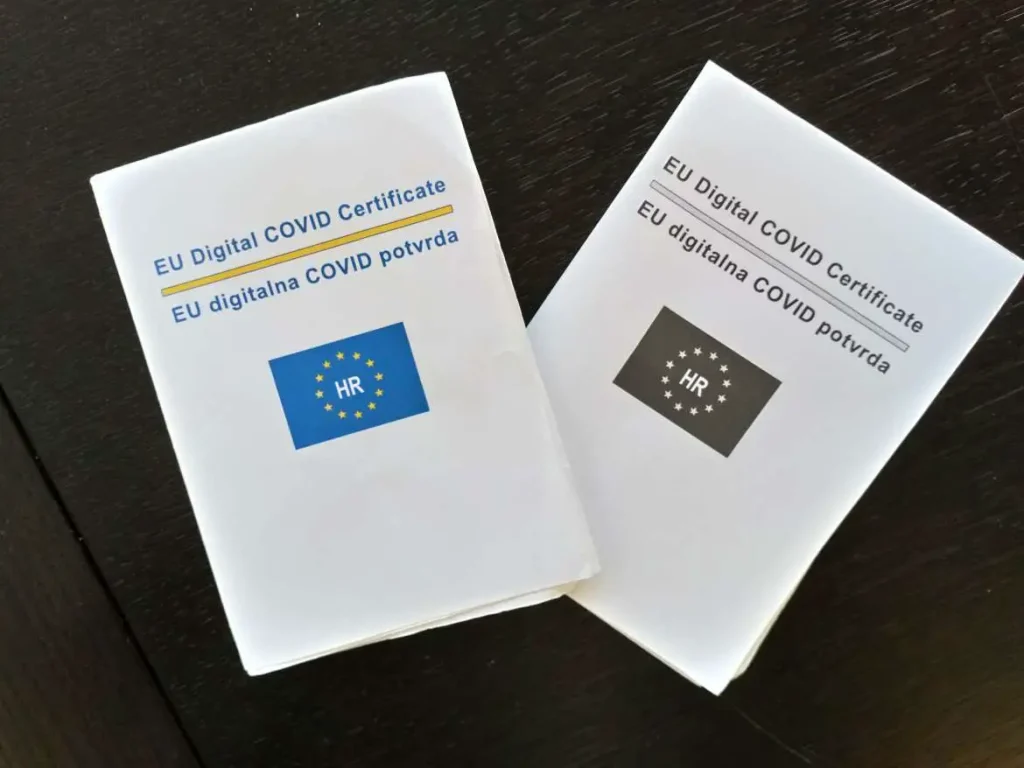As Poslovni Dnevnik writes, as of Tuesday the 16th of November, about 370,000 people employed in the public and state sector will not be able to go to their places of work without valid Croatian covid certificates, and the services these institutions offer will also not be able to be used by people who don’t possess the same document. Those who aren’t vaccinated will only be able to go to their places of work (if they work in one of the above sectors) if they have a certificate issued on the basis of having contracted and since recovered from the novel virus.
It all seems more or less clear enough (for Croatian standards), but there’s still a lack of clarity – can people who have suffered from coronavirus in the last six months or in the last twelve months go to work if they work in public services? Can they enter a post office?
Croatian covid certificates with a QR code, either in digital or physical/paper form, can be obtained by those who have had the virus in the last six months and can prove it with a positive PCR test result from within that exact time frame. This is done exclusively with a PCR test result only, which is clearly written on the page where covid certificates are taken out in digital form.
Namely, according to the appropriate EU regulation, proof of having had and since overcome this illness is proven exclusively in this way and a certificate issued on that basis will be valid for six months. But Croatia has its own rules.
According to the Croatian rules, for all those who work in the healthcare and social care system, and as of today for all employees in state and public services, other ”appropriate evidence” is valid, apart from simply presenting Croatian covid certificates.
Namely, if you overcame the coronavirus eight or maybe eleven months ago, you cannot get a covid certificate, but you can still go to work or to a parent-teacher meeting at your child’s school. To be able to do this, you must have a certificate from your GP. In this case, the condition is not overcoming the illness in the last six months, but in the last twelve.
In addition, there is no condition that you must have tested positive with a PCR test only, as is the case with regular Croatian covid certificates. In this case, a positive rapid antigen test result is enough.
The Decision, which was put into force yesterday, states that it isn’t actually necessary to have a covid-certificate, nor a certificate from your GP confirming the illness. Instead, your GP can put you down as a so-called ”probable case” if someone in your household has tested positive and you had contact with that individual. It’s easy to see where the confusion lies here as the situation is being overcomplicated and muddied in typical Croatian style.
So, in short, if you work in state or public services and you aren’t vaccinated, you can still go to work with the confirmation from your GP that someone in your family has been positive for coronavirus in the last year, and you had contact with that person. Persons who had properly diagnosed coronavirus patients in their family and had contact with these patients can be declared so-called ”probable cases” even if the presence of the virus was never confirmed with a test, the Decision states.
It is not stated whether this refers to a case in which you were officially reported as someone’s contact and as such put into self-isolation, or if it’s enough to give your doctor a positive test result from the aforementioned time period from a family member.
For all you need to know about coronavirus specific to Croatia, make sure to bookmark our dedicated section and select your preferred language if it isn’t English.









